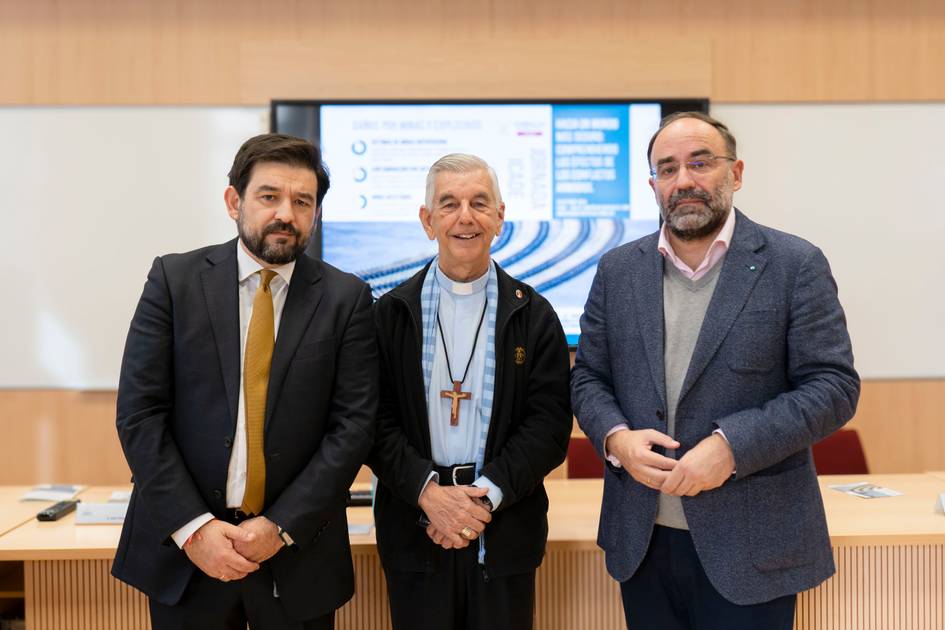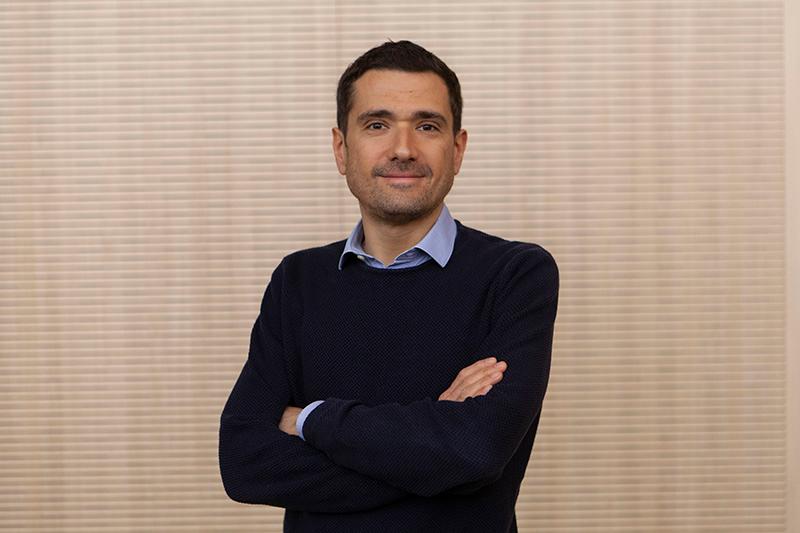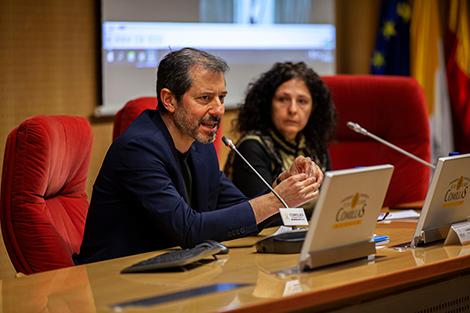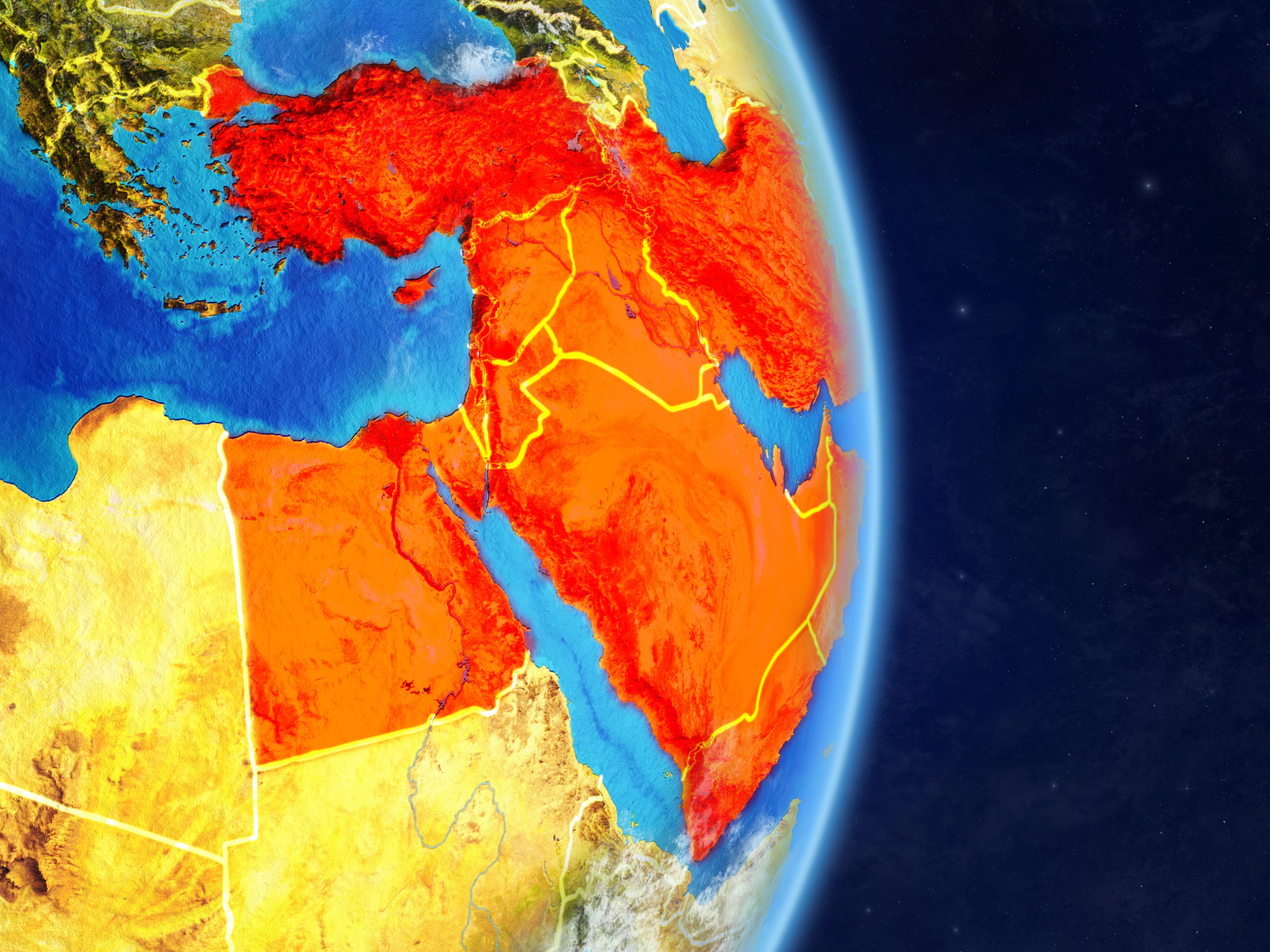What are the consequences of landmines in warfare?
Kike Figaredo, SJ, explained his work in Cambodia with landmine victims at a conference organised by CID-ICADE.

From left to right, Alberto Priego, Lecturer in International Relations at Comillas ICADE; "Kike" Figaredo, SJ, Apostolic Prefect in the region of Battanbang (Cambodia), and Abel Veiga, Dean of the Faculty of Law (Comillas ICADE)
31 October 2024
Cambodia is the most heavily mined country in Southeast Asia, with more than two million mines estimated to remain unexploded. "A few years ago there were 30 incidents a day, now there are barely 100 a year," says Enrique "Kike" Figaredo, SJ, a Jesuit, apostolic prefect in the region of Battanbang (Cambodia) and president of the Episcopal Confederation of Lao Cambodia. He has been working in Cambodia for decades assisting landmine victims from the Arrupe Centre of the NGO Sauce and promoted the International Campaign to Ban Landmines which, in turn, led to the signing of the Ottawa International Treaty in 1997 and was awarded the Nobel Peace Prize in 1997.
Figaredo was the speaker at the conference "Towards a Safer World: Understanding the Effects of Armed Conflict", which analysed explosive weapons in warfare and their political, social and psychological consequences. "In war everyone is a loser and in peace there is an opportunity to build back better. Let us protect peace and rebuild it where there are conflicts", said Figaredo, who recalled that "today there is an international law on the elimination of mines which, although they are illegal, are being used in Ukraine".
During his speech, he also alluded to the role of the Church in shaping peace. "Churches have a lot of power to create peace, it is of special significance that people see that religions come together and act together", referring to the joint work between Catholics and Buddhists in Cambodia.
For his part, the rector of Comillas, Antonio Allende, SJ, praised Figaredo's work and warned that explosive weapons are not only the most harmful to the civilian population, but that "they continue to do harm after the conflict is over". The dean of the Faculty of Law, Abel Veiga, also warned that "international law is the first great victim of the enormous hypocrisy in the world".
The conference brought together psychologists, health professionals, researchers from different universities and military personnel, with the presence of representatives from, among other organisations, the Geneva International Centre for Humanitarian Demining (GICHD) - who analysed the influence of anti-personnel mines in wars - and the Civil Guard's Servicio de Desactivación de Explosivos y Defensa NRBQ.
You may also be interested in

Se presenta “Democracia y autocracias ante la guerra de Ucrania”, obra en la que participa un profesor de Relaciones Internacionales de Comillas

Comillas CIHS celebró el Día mundial del trabajo social con una charla del autor del documental “Los ojos de la guerra”

It does this through its podcasts "Brújula Global" and "El mundo está loco, loco, loco"
